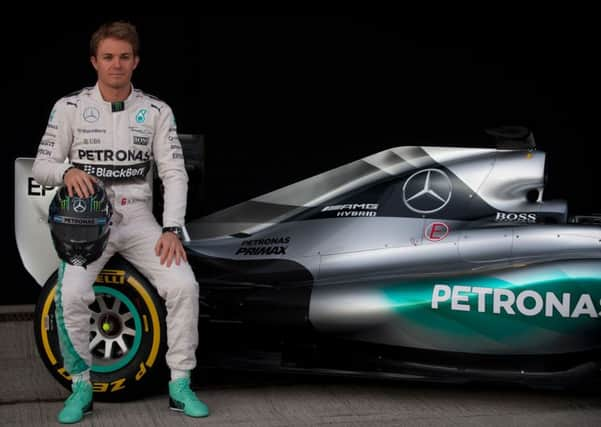No outpouring of emotion over Nico Rosberg retirement


His shock announcement of his retirement from the sport, effective immediately, has not been met with the sentimental outpouring that both Jenson Button and Felipe Massa received. The decision of Button, the most likeable Brit to race in the sport since Nigel Mansell, to hang up his helmet, was met with appropriate recognition of his place in the sport, while Massa’s shunt in Brazil allowed him to literally wave goodbye to his fans with the most appropriate of backdrops in the form of the Interlagos hills.
Rosberg, on the other hand, will get none of that. He’ll be lauded as a ‘fine’ driver, as a ‘good but not great’ racer, and a man who, while personable, never set the world alight in the cockpit or in a press conference. There will be no out-pouring of sentiment, no gushing profiles of a giant of motorsport finally allowing the new generation through, and his legacy as a racing driver will be under scrutiny. Was he merely in the right place at the right time? Take his team-mate Lewis Hamilton out of the equation (which would be mighty unfair), and arguably any driver on the grid would have won the championship in that Mercedes.
Advertisement
Hide AdAdvertisement
Hide AdBut, as the 31 year old German explained in his statement to Facebook about his retirement, “I have climbed my mountain, I am on the peak, so this feels right”. And in a way, it does. Rosberg has been immersed in Formula One his whole life, thanks to his father, Keke Rosberg’s career. It’s been 25 years – a long time for a young man – since Rosberg first raced in a kart. So why not go now, at the top of motorsport’s Everest?
He has a young daughter and a family life that the past 12 months have put under strain, surely not helped by a narrow and blinkered ‘one race at a time’ motto that has dominated his psychology for the whole season. The strain and pressure exerted by Hamilton has also been immense. Say what you like about Hamilton’s personality, he’s Senna quick, and the pressure was unrelenting, right down to the last corner at Abu Dhabi. The choice to go now for Rosberg was there, and he took it. You can’t really blame him.
However, the idea that he is, as Rosberg himself put it, “putting my racing family into a tough situation”, is an understatement of remarkable proportions. Assuming, as is believed to be the case, that the new regulations for 2017 are not so drastic that they will totally alter the running order of the grid in the same way they did in 2014, Mercedes will remain at the sharp end of the grid, but with one less world champion driving their cars than expected.
The task to replace Rosberg is hugely important and complicated. The unquestionably ‘great’ drivers out there, Sebastian Vettel, Fernando Alonso, Daniel Ricciardo and Max Verstappen, are all tied up for next season - some beyond - and the emergence of the pay driver, including the likes of Massa replacement at Williams Lance Stroll, has meant that the amount of available talent is at its lowest for years. Safe options like Valtteri Bottas or Sergio Perez have all signed an extension with their teams for next season, as have some of the most precocious young talents. Esteban Ocon has signed for Force India, while McLaren’s young hope Stoffel Vandoorne is replacing Jenson Button alongside Alonso.
Until Rosberg’s announcement, even Pascal Wehrlein, who is on the Mercedes young driver programme, was being heavily linked with the free second Sauber seat alongside Marcus Ericsson. Unless there is a radical change in circumstances in regards to more experienced drivers, Wehrlein is likely to take Rosberg’s seat. It would be one hell of a gamble from Mercedes executive director Toto Wolff, but there is not much in the way of different options.
The decision on who replaces Rosberg may well define his legacy. If new blood out-performs Hamilton, Rosberg will be viewed in an even more derisory light by the viewing public. If, however, his replacement doesn’t handle the pressure as well as the German did, his stock will rise to where it should be. Not as one of the greats, viewed as being blessed with natural pace or extreme bravery, but as a product of his time, whose world championship was won by remarkable consistency, determined calculation and sheer unflappability.